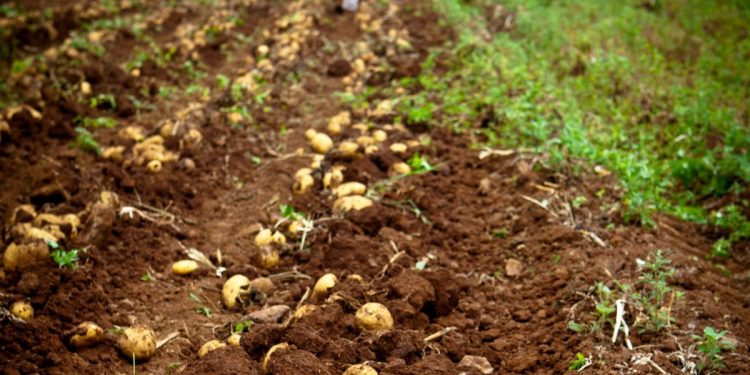Explore the pivotal role of boron in potato cultivation and its profound impact on plant growth, tuber development, and overall crop productivity. This article presents the latest data and insights on incorporating boron into potato growing practices, catering to the interests of farmers, agronomists, agricultural engineers, farm owners, and agricultural scientists.
Introduction:
Potatoes are a widely cultivated and economically important crop, making it crucial for farmers to optimize their growth and yield. One essential micronutrient that significantly influences potato production is boron. In this article, we delve into the significance of boron in potato growing, exploring its effects on plant physiology, tuber formation, and overall crop performance. By harnessing the power of boron, farmers can unlock the potential for thriving potato crops.
The Power of Boron:
Boron plays a vital role in several physiological processes within potato plants. It is involved in cell wall formation, sugar transport, and hormone regulation. Adequate boron levels are essential for optimal tuber development, starch accumulation, and overall plant health.
Data on Boron’s Impact in Potato Cultivation:
A comprehensive study conducted by the Department of Plant and Soil Sciences at the University of Delaware investigated the effects of boron application on potato crops. The research revealed that maintaining adequate boron levels significantly improved potato yield and quality. The plants supplemented with boron exhibited increased tuber size, higher starch content, and improved marketable yields compared to boron-deficient plants.
Furthermore, boron played a crucial role in disease resistance. The study demonstrated that boron-enriched potato plants exhibited enhanced resistance to common diseases such as potato scab and late blight. This led to improved crop health and reduced economic losses due to disease-related damages.
Consequences of Boron Integration in Potato Farming:
Integrating boron into potato farming practices carries significant consequences. Firstly, providing optimal boron levels promotes robust plant growth and tuber development, resulting in increased yield and profitability for farmers. Additionally, boron supplementation enhances tuber quality, including size, shape, and skin appearance. High-quality potatoes have better market value, enabling farmers to meet consumer demands and achieve higher returns.
Moreover, boron’s role in disease resistance contributes to overall crop health and reduces the need for excessive pesticide applications. This promotes sustainable and environmentally friendly potato production practices.
Conclusion:
Recognizing the importance of boron in potato growing is paramount to achieving optimal plant growth, tuber development, and disease resistance. By harnessing the power of boron, farmers, agronomists, agricultural engineers, farm owners, and agricultural scientists can unlock the full potential of their potato crops. The integration of boron promotes vigorous plant growth, improved tuber quality, and enhanced disease management, paving the way for successful and sustainable potato farming.
Tags: #boron #potatoes #tubergrowth #cropyield #diseaseresistance #sustainableagriculture #agronomy #agriculturalengineering #farmers #farmowners #agriculturalscientists







